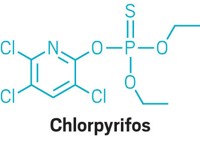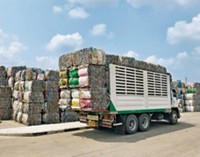Advertisement
Grab your lab coat. Let's get started
Welcome!
Welcome!
Create an account below to get 6 C&EN articles per month, receive newsletters and more - all free.
It seems this is your first time logging in online. Please enter the following information to continue.
As an ACS member you automatically get access to this site. All we need is few more details to create your reading experience.
Not you? Sign in with a different account.
Not you? Sign in with a different account.
ERROR 1
ERROR 1
ERROR 2
ERROR 2
ERROR 2
ERROR 2
ERROR 2
Password and Confirm password must match.
If you have an ACS member number, please enter it here so we can link this account to your membership. (optional)
ERROR 2
ACS values your privacy. By submitting your information, you are gaining access to C&EN and subscribing to our weekly newsletter. We use the information you provide to make your reading experience better, and we will never sell your data to third party members.
Pollution
Plastic bans in India expand to 18 states
Business leaders concerned about effect on plastics industry, businesses that use plastic products
by K. V. Venkatasubramanian, special to C&EN
April 17, 2018
| A version of this story appeared in
Volume 96, Issue 17

India’s western state of Maharashtra has joined 17 other states to ban the manufacture, use, storage, distribution, sale, import and transportation of many plastic goods and materials. The prohibition covers a slew of items including polyethylene bags, polyethylene terephthalate bottles, polystyrene products, and various plastic plates, cups, spoons and forks.
Maharashtra is home to Mumbai and is India’s second-most populous state. In total, India generates 15,000 metric tons of plastic waste daily, and only 60% is collected as waste or for recycling—the remainder is littered, according to India’s Central Pollution Control Board.
Environmental groups have welcomed the plastics bans. But stakeholders such as the Maharashtra Chamber of Commerce, Industry & Agriculture (MACCIA), All India Plastic Manufacturers Association (AIPMA), and the Clothing Manufacturers Association of India say the bans adversely affect the plastics industry as well as business that use plastic products.
The Maharashtra ban has derailed production, packaging, and supply schedules of grains, baked goods, and clothing industries, says MACCIA vice president Lalit Gandhi. “Many units are on the verge of closure in the absence of basic packaging material,” he told reporters in Mumbai on April 3. “We fear that nearly 300,000 people employed may become jobless.”
The ban could turn large capital investments into nonperforming assets, AIPMA president Hiten Bheda says in a statement. Additionally, businesses that rely on plastic packaging may not have technologically feasible or economically viable alternatives, he says.
India’s plastics industry employs about 4 million people, according to the India Brand Equity Foundation, a government agency.
Shortly after the Maharashtra ban was announced on March 23, the Maharashtra Plastic Manufacturer’s Association filed a lawsuit challenging the ban. The state government responded to the suit saying that plastic waste is a serious environmental hazard that affects the health of humans and animals. In an interim ruling, the court declined to halt implementation of the ban but gave plastics manufacturers, distributors, and retailers three months to dispose of existing stock of banned items. The court is expected to issue a final ruling on June 8.





Join the conversation
Contact the reporter
Submit a Letter to the Editor for publication
Engage with us on Twitter